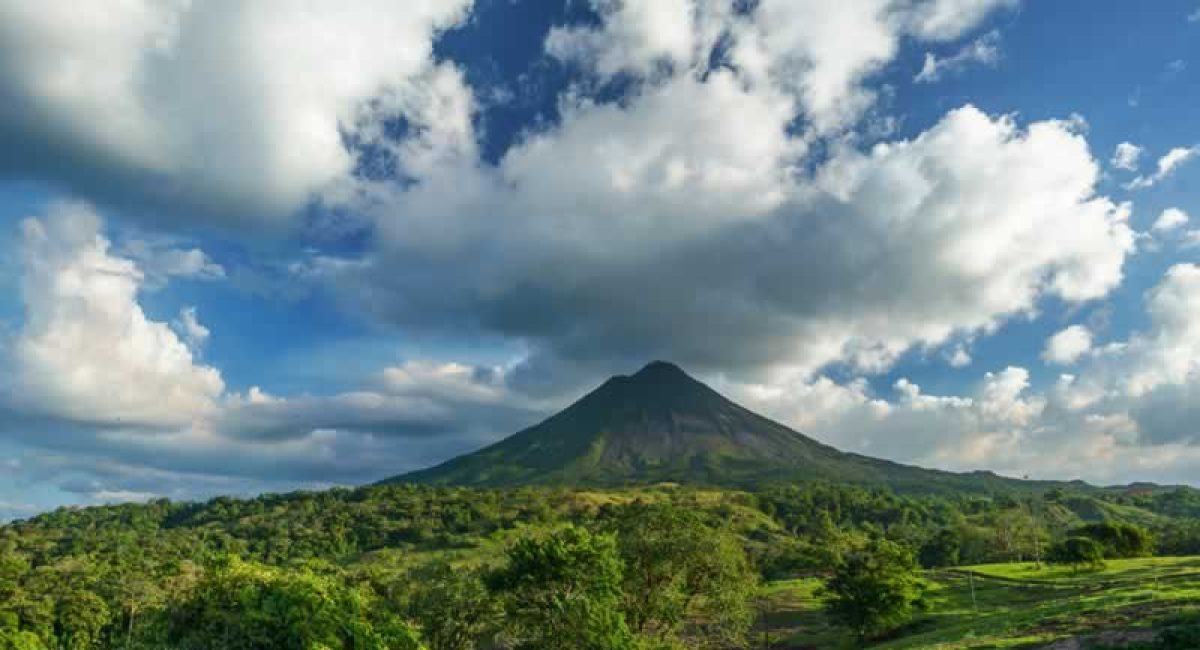U.S. Travelers can Visit Costa Rica Again
Starting on November 1, all U.S. travelers will be welcome to Costa Rica. Globe Aware volunteers from all 50 states will be able to participate in any of three programs in Costa Rica, with proper safety guidelines and precautions taken.
Costa Rica Opens to All U.S. Travelers
Starting November 1, any American who presents a negative COVID-19 test can travel to Costa Rica.
By Michelle Baran
Oct 7, 2020
On September 1, Costa Rica began allowing international travelers from the United States to fly into the country as long as they were residents of one of the following eight states: Connecticut, Maine, Maryland, New York, New Jersey, New Hampshire, Vermont, or Virginia, plus the District of Columbia. Starting September 15, travelers from Arizona, Colorado, Massachusetts, Michigan, New Mexico, Oregon, Pennsylvania, Rhode Island, Washington, and Wyoming were able to join them. As of October 1, Californians could head to Costa Rica, too. And on October 15, residents of Florida, Georgia, and Texas get the green light.
But starting on November 1, all U.S. travelers will be welcome.
After closing its borders to international travelers on March 18 (other than to those who submitted to a 14-day quarantine order) to control the spread of coronavirus, the Central American country began welcoming international travelers back on August 1.
Since August 19, citizens and residents from these regions and countries have been able to enter Costa Rica: the European Union, the Schengen Zone, the United Kingdom, Canada, Uruguay, Japan, South Korea, Thailand, Singapore, China, and New Zealand.
Travelers to Costa Rica must provide a negative COVID-19 test result
Before flying to Costa Rica, visitors will need to fill out an epidemiological health form online. All visitors (with the exception of minors traveling with their families) will also need to get a polymerase chain reaction (PCR) diagnostic test (also known as the nasal swab test) and furnish evidence of a negative COVID-19 result that was procured within 72 hours prior to arrival in Costa Rica.
International arrivals will also be required to show proof of international health insurance coverage, either from their own provider or that they purchased in Costa Rica (local insurance policies authorized for travelers are available through the National Insurance Institute and through insurance company Sagicor). For international insurance policies, tourists must provide verification that their insurance company will cover them in Costa Rica; will cover at least $50,000 in medical expenses in the event they contract COVID-19 while in Costa Rica; and will cover a minimum of $2,000 in lodging expenses for any issues related to the pandemic (such as the need to quarantine).
Commercial flights are operating into and out of Costa Rica’s three international airports: Juan Santamaría International Airport outside of the capital San José, Daniel Oduber Quirós Airport in Liberia, and Tobías Bolaños Airport in San José. Starting on September 13, United Airlines added daily flights from Houston, Texas, to Juan Santamaría International Airport, and three flights a week from Houston to Daniel Oduber Quirós Airport. United plans to add flights from Newark International Airport to Juan Santamaría International Airport and to Daniel Oduber Quirós Airport in October as well as flights from Colorado. American Airlines is adding flights to Daniel Oduber Quirós Airport from Miami and from Dallas, Texas. Delta plans to fly to Costa Rica from Atlanta, Georgia, as well.
Starting October 15, American Airlines customers traveling from Dallas Fort Worth International Airport (DFW) to Costa Rica will have access to the airline’s newly implecement preflight COVID-19 testing program. The options for getting tested prior to the Dallas–Costa Rica flights will be an at-home test kit provided by LetsGetChecked (with results provided within 48 hours on average) that costs $129, including shipping; in-person testing at a CareNow urgent care location in the Dallas area; or a rapid-result test administered by CareNow at the DFW airport. American has not yet said what the in-person tests will cost. At-home testing will also be available for the Miami to Costa Rica flights.
In Costa Rica, travelers must wear masks at the airport and comply with local health regulations, including practicing physical distancing. As of August 31, hotels in Costa Rica are allowed to operate at 100 percent capacity, with the exception of public areas, which will be required to limit capacity to 50 percent. For up-to-date information and guidelines regarding COVID-19, travelers can visit the Ministry of Health’s website.
During the pause in tourism arrivals, Costa Rica tourism officials focused on training the workforce on new coronavirus-friendly health and sanitation guidelines and protocols. Costa Rica was recently recognized by the World Travel & Tourism Council (WTTC) through its “Safe Travels” stamp for its commitment to updated health and safety measures.


0 Comments